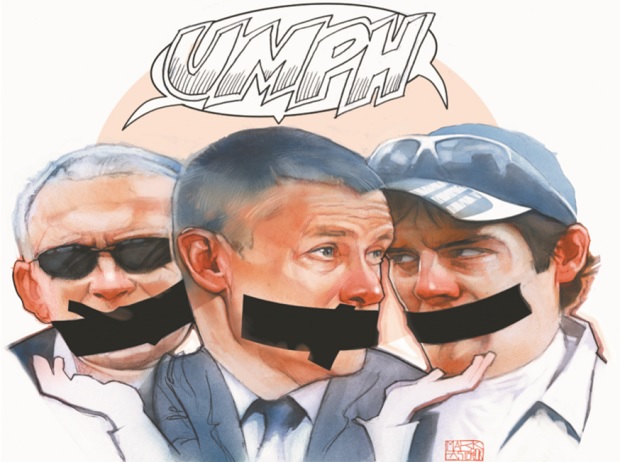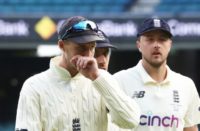Some years ago it was my task, on behalf of a group of reporters covering a county cricket match at the Oval, to approach one of the umpires after close of play to ask why he had felt it necessary to step in when one of the Surrey batsmen squared up to a couple of the Gloucestershire players that afternoon.
The official in question was renowned for his common sense, good humour, excellent decision-making, fondness for beer and general good-eggness. But none of this was apparent in his response to my polite enquiry.
“What’s it got to do with you?” he gruffed. “Well,” I replied, “ the chaps in the Press box would like to be able to let the public know what was going on.”
“What happens out there is no concern of you lot, “ he told me “or the public.”
He was not kidding. That story has been coming back to me at irregular intervals in the past few weeks, most recently a few days ago when Ashley Giles “broke his silence” over the news that the ECB left him jobless by appointing Peter Moores the new England coach.
Giles told Sky Sports: “I can’t go into too much detail about that process, but I’m bitterly disappointed I didn’t get the job.”
“I can’t go into too much detail….”. Sounds familiar, doesn’t it? As familiar, in fact, as the words “confidentiality agreement”.
Rewind, for example, to early February, in the days after new England managing director Paul Downton announced the decision to jettison Kevin Pietersen, and memories of another Sky Sports interview, this time with National Selector James Whitaker.
Tim Abrahams: “I appreciate there are things you can’t say as legal things are still going on, but the burning question seems to be, James, and you are the National Selector, and in a way the buck stops with you about selecting players, why the decision was made to leave Kevin out?
Whitaker: “That is a legal position which at the moment I’m not at liberty to say. (Phone rings in jacket pocket) I thought I’d turned that off.”
Or what about this, from England captain Alastair Cook, the man many credit for the final call over KP, in reply to the same question?
“I can’t actually answer that question, totally, at this precise moment in time which is incredibly frustrating for me,” Cook said at the Essex media day at the end of March. Frustrating for him? Truly, I’ve lost count of the number of times I’ve read and heard that Paul Downton and Pietersen himself are also bound by a C.A. (or should that be bound and gagged?).
“God dammit,” exclaims Jason Robards as Washington Post EditorBen Bradlee in All The President’s Men, the film of the Watergate break-in and how the reporting of it by Bob Woodward and Carl Bernstein led to the impeachment of US President Richard Nixon, “when is somebody going to go on the record in this story?”. Quite.
It is entirely reasonable that those seeking a career in espionage or the armed forces should be asked to sign the official secrets act. And there are other laws to protect business from commercially sensitive information falling into the wrong hands, etc.
But when it comes to the cases of Pietersen and Giles, and quite apart from the basic issues concerning free speech and police states about which we do not have the time nor space to go into here, something just doesn’t feel right about an organisation like the England and Wales Cricket Board demanding silence, or else, and this is by no means the first nor last time that has happened.
No form of words is likelier to be followed by the ones more questions than answers than confidentiality agreement and here are a few to be going along with. Regarding Pietersen, just why was he, in Downton’s words, so “disengaged” with the England team in the final Ashes Test in Sydney?
And leaving aside the feeling is some areas of the dressing room that Pietersen’s motive for seeking change was a desire to take charge as captain once again, how many of his team-mates, while disagreeing with the way he went about expressing it, actually supported his stance over Flower and maybe even about Cook’s captaincy?
Regarding Giles, how early in the piece did the powers-that-be decide Moores was the man they wanted to take over full-time from Flower? Was it before the players had even arrived in West Indies for the one-day trip that preceded the World t20, as some have suggested? And how much, directly or indirectly, did Flower influence Downton’s thinking over Moores, a man he admires greatly and who appointed him his assistant coach first time round and Giles, with whom he occasionally did not see eye to eye in their dual roles as Test and ODI coach on many issues?
In other words, did Giles ever have a real chance of getting the job at all, other than by pulling off what would have been a minor miracle in somehow leading a poor team to a highly improbable World t20 trophy win? And has anyone asked what persuaded William Hill to slash the odds against Moores’ appointment two days before it was announced?
Whatever the answers to those, the main problem about these confidentiality agreements is that the truth often becomes a casual victim, sometimes being hidden for years, occasionally even forever, thus putting at risk the process of damage repair.
Not for nothing does their implementation instinctively cause some to ask another, fundamental question, namely: “what have they got to hide?”. Then again, of course, when all is said and done what happens out there is no concern of mine or yours.













